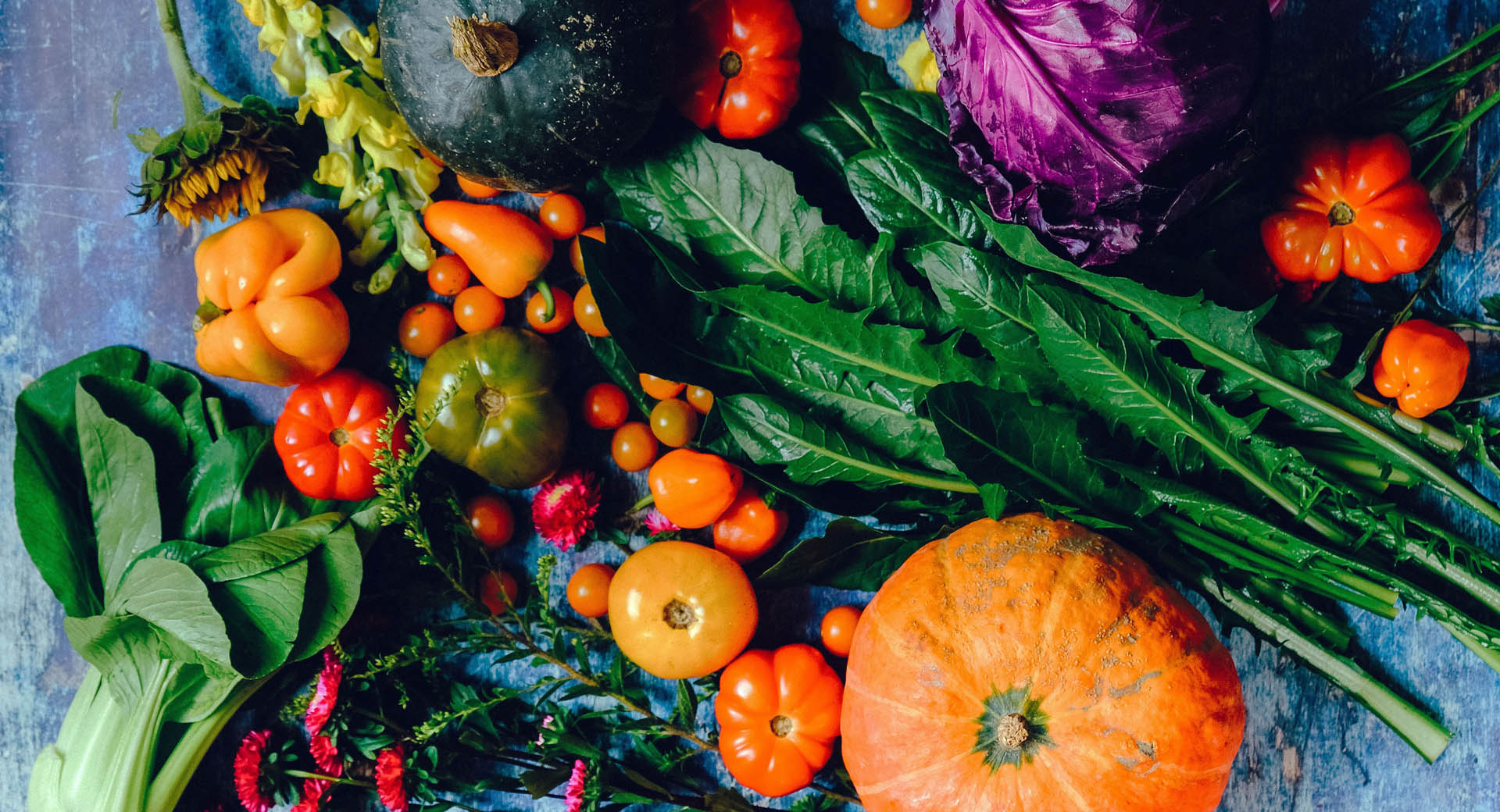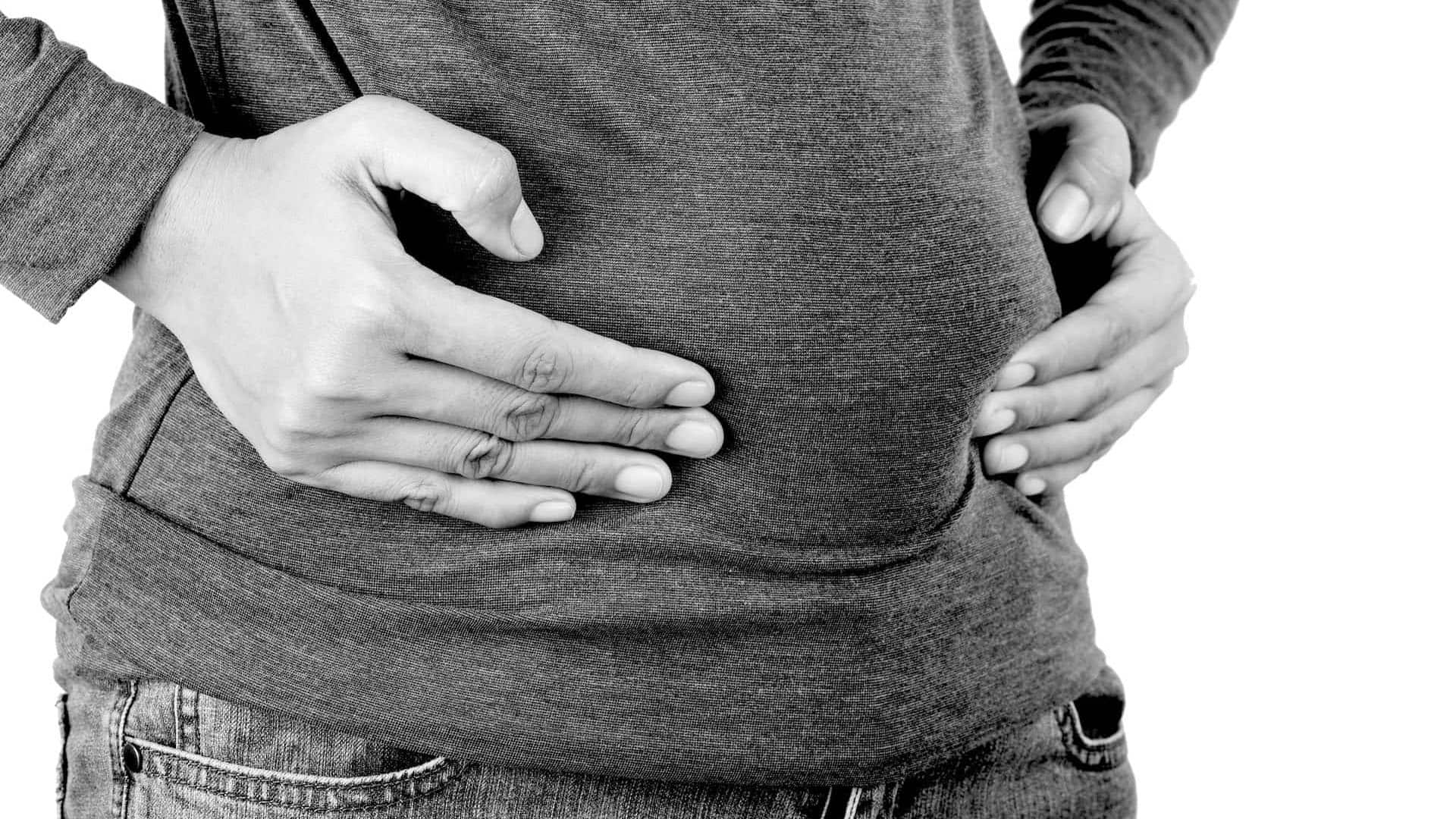I believe in a balanced diet with local, seasonal and organic products. There is not a single diet fitting everyone’s needs and healing all diseases. There are however basic principles applying to everyone. Apart from these basic principles, nutrition becomes very individual depending on the digestive capacity of your gut, your exercise levels and on you as a whole and where you are at in life.

We get the basic principles from Mayr medicine. These include eating slowly and chewing well, no raw food after 2pm und the lightest meal in the evening. 16:8 is ideal, if you leave dinner out. This allows the gut to heal overnight.
Every inflamation
begins in the gut
Any inflammation such as an autoimmune disease of the thyroid gland or an inflammatory skin disease like rosacea or acne equals inflammation in the gut. More and more studies emerge showing the connection between the gut microbiome and other organs and diseases.
The microbiome describes the composition of all bacteria, viruses, fungi and parasites in an organ. The skin has its own microbiome as does the lung, the gut and so on. Environmental factors play a huge role, such as nutrition, environmental toxins and stress. The balance between good and bad bacteria in the gut is essential. The good bacteria are vital for our immune system, our metabolism (weight gain is easy with a larger proportion of Firmicutes) and our general wellbeing. Good bacteria can be fostered with a high fiber diet.
Various foods
Difficult to digest foods can lead to irritation and inflammation of the gut. Wheat is one of those foods, being overprocessed and nearly impossible to digest. Gluten is generally difficult to digest. Having gluten free days is good for the regeneration of the gut and reduces inflammation. We know that sugar is bad, but candida (thrush) living in our gut loves it and craves more, and off we go to get more sweets. Raw food is very difficult to digest, particularly in the evenings and as we get older.
The gut
The job of the gut is to absorb nutrients and excrete toxins. An intact gut barrier is really important to keep toxins out of the blood stream. The gut is mucosal tissue and quite sensitive. It gets irritated with wrong food and incorrect eating habits. If we eat very hastily, we end up swallowing big junks of food without chewing them properly. The digestive system can’t break down those junks and in the warmth of the gut it starts fermenting and rotting. Toxic byproducts are produced such as alcohols damaging the gut barrier further and allowing more toxins into the blood stream. It is then up to the liver, the lungs and the skin to excrete those toxins.
The skin
Nutrition, hormones, medications and sun exposure have an impact on our skin. Nutrition plays an important role. The right food delivers plenty of antioxidants to fight damaging free radicals and healthy fats for an intact skin barrier. Looking for example at acne from a holistic point of view we see inflammation, sometimes also cysts and pustules. This reflects too much dampness in the body and foods promoting dampness such as sugar and milk products should be avoided. This is also true for enlarged pores.

